By 1955, and after decades of resistance to French colonials, Vietnam was partitioned into northern and southern territories. In a fight to reunify their divided country under communist rule, the North Vietnamese rebelled against the anti-communist South—which included their longtime enemies, the French. Soon thereafter, the U.S. joined the war effort, siding with South Vietnam to help stop the spread of communism. This intervention would become one of the most divisive decisions in U.S. history, spawning an anti-war movement that would remain influential long after the war ended in 1975, with the fall of Saigon.
Now that Ken Burns’ PBS documentary has concluded, we’re re-reading the classics of the Vietnam War’s literary canon. From the first-hand accounts of on-site doctors to novels about soldiers on the frontlines, the following ten books describe the tragedies and triumphs endured by the men and women who fought for their country.
Nonfiction
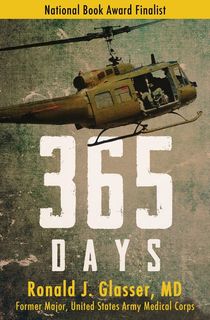
365 Days
In 1968, Dr. Ronald Glasser arrived at Camp Zuma in the midst of chaos. As one of the few Army camps in Japan, Zuma’s beds were scarce—helping hands, even more so—and Glasser was confronted with the gruesome reality of war: no one, not even the wealthy, was spared from the violence. In his memoir, Glasser relays the stories of the patients he treated, shedding light on not just the physical tolls of war, but of the emotional costs as well.
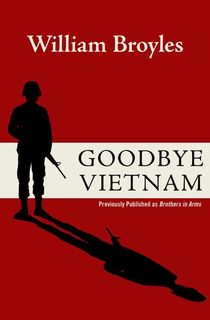
Goodbye Vietnam
Before he penned the screenplays for Jarhead and Castaway, a young William Broyles enlisted to serve in the Vietnam War. More than a decade later, he returned to his former battlegrounds and recorded his journey in Goodbye Vietnam. From his encounters with ex-Vietnamese soldiers to interviews with victims of his own violence, Broyles’ memoir is a reminder of how the brotherhood of man can overcome death, bloodshed, and hatred.
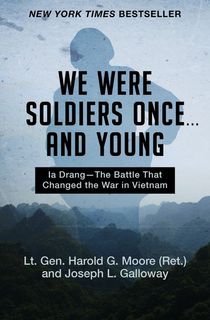
We Were Soldiers Once . . . and Young
November, 1965. With just 450 U.S. soldiers at his back, Harold G. Moore led his outnumbered troops against 2,000 Vietnamese. The conflict—known as the Battle of the Ia Drang Valley—would become one of the most brutal battles of the war. In this New York Times bestseller, Lieutenant General Moore describes those 34 days of savage combat through his own recollections and interviews with the people who fought there.
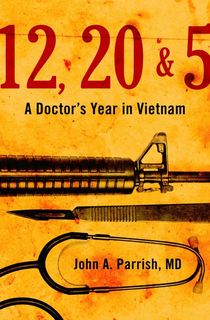
12, 20 & 5
John A. Parrish was little more than an intern when he arrived at a marine camp in Phu Bai. There, he came face to face with both heroism and evil—proving that man is capable of both. 12, 20, & 5 is his searing account of the horrors he witnessed in Vietnam and how they shaped him into the doctor he is today.

Chickenhawk
As a boy, Robert Mason had dreams of flying. As a man, those dreams were fulfilled in the skies over Vietnam, where he served as a helicopter pilot. Chickenhawk spans Mason’s career—from his early training days to his combat missions for the famed First Cavalry Division—as he reflects on the friendships, battles, and wisdom he won and lost to war.
Fiction

Saigon
Throughout the first half of the 20th century, the Vietnamese bucked against their French colonial rulers. Saigon depicts the tensions between these two warring nations, centering on Joseph—an American drawn to the country first by his father, then by duty, then by journalism, and finally by love. The history of Saigon unfolds as Joseph’s story progresses, depicting the capital city in the 1920s through 1975 when its collapse brought an end to the war.
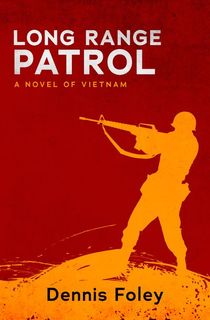
Long Range Patrol
The first in a trilogy, Foley’s novel tells the story of Ranger Lieutenant Jim Hollister, who leads a small band of men into the heart of enemy territory. These men are the Long Range Reconnaissance Patrols—an Army unit of volunteers known for their bravery—and Foley writes of their high-risk missions with the knowledge only a Vietnam veteran can have.
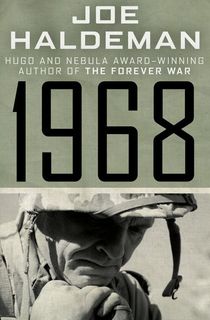
1968
After being wounded in the war, John “Spider” Speidel returns home to a devastating diagnosis and a changed girlfriend. In Spider’s absence, Beverly has not only taken up with another man but now protests the very cause Spider fought for. Through the lens of Spider’s heartbreak and lingering trauma, readers come to understand America as it was in 1968: a nation shaken by a sexual revolution, the Civil Rights Movement, and war.
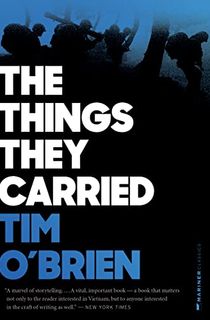
The Things They Carried
Author Tim O’Brien was one of the seven members of the Alpha Company, a group he portrays in this New York Times bestseller. Drafted as young men, each of them would endure the hardships of a soldier’s life and carry those memories long after the war ended. At once a moving account of the Vietnam War and a meditation on the power of the human spirit, The Things They Carried has been a classic of American literature since its publication in 1990.

The 13th Valley
One of the most definitive works on the Vietnam War, The 13th Valley follows a company of paratroopers as they fight against the North Vietnamese. Del Vecchio writes as vividly of the landscape and jungle warfare as he does of the bonds, racial tensions, and doubts amongst the U.S. soldiers. The result is an immersive book that, according the New York Times, is an unparalleled depiction of “the day-to-day pain, discomfort, frustration, and exhilaration of the American military experience in Vietnam.”


